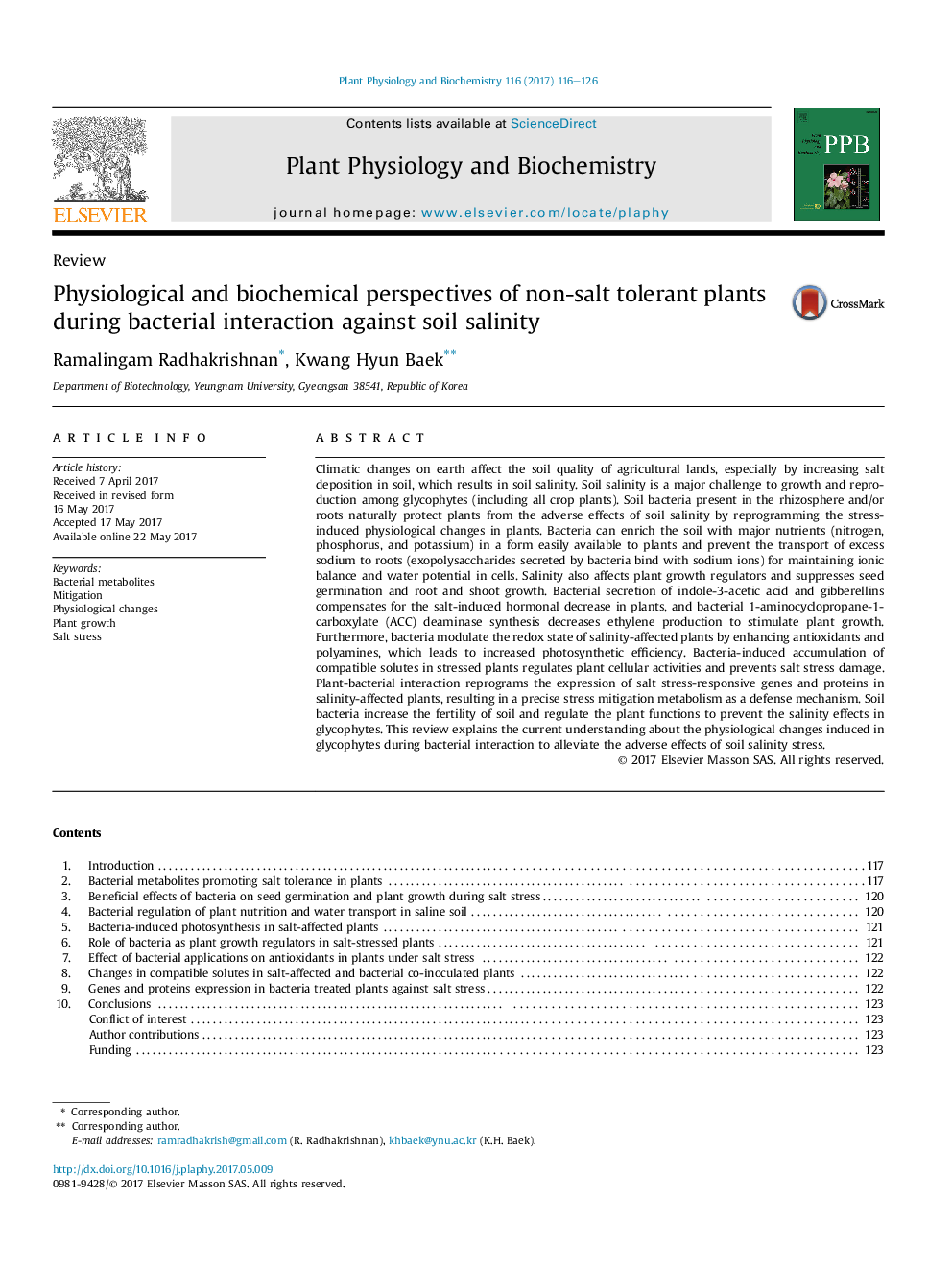| Article ID | Journal | Published Year | Pages | File Type |
|---|---|---|---|---|
| 5515360 | Plant Physiology and Biochemistry | 2017 | 11 Pages |
â¢During soil salinity, bacteria produce bioactive metabolites to increase the seed germination, plant growth and yield.â¢Bacteria balance the nutrient and water movement in plants by inhibiting sodium transport from the salinity affected soil.â¢Bacterial interaction adjust the expression of stress-responsive genes and proteins in salt-affected plants.â¢Bacteria enhance the photosynthesis, plant growth regulators, antioxidants and compatible solutes to plant-salt tolerance.
Climatic changes on earth affect the soil quality of agricultural lands, especially by increasing salt deposition in soil, which results in soil salinity. Soil salinity is a major challenge to growth and reproduction among glycophytes (including all crop plants). Soil bacteria present in the rhizosphere and/or roots naturally protect plants from the adverse effects of soil salinity by reprogramming the stress-induced physiological changes in plants. Bacteria can enrich the soil with major nutrients (nitrogen, phosphorus, and potassium) in a form easily available to plants and prevent the transport of excess sodium to roots (exopolysaccharides secreted by bacteria bind with sodium ions) for maintaining ionic balance and water potential in cells. Salinity also affects plant growth regulators and suppresses seed germination and root and shoot growth. Bacterial secretion of indole-3-acetic acid and gibberellins compensates for the salt-induced hormonal decrease in plants, and bacterial 1-aminocyclopropane-1-carboxylate (ACC) deaminase synthesis decreases ethylene production to stimulate plant growth. Furthermore, bacteria modulate the redox state of salinity-affected plants by enhancing antioxidants and polyamines, which leads to increased photosynthetic efficiency. Bacteria-induced accumulation of compatible solutes in stressed plants regulates plant cellular activities and prevents salt stress damage. Plant-bacterial interaction reprograms the expression of salt stress-responsive genes and proteins in salinity-affected plants, resulting in a precise stress mitigation metabolism as a defense mechanism. Soil bacteria increase the fertility of soil and regulate the plant functions to prevent the salinity effects in glycophytes. This review explains the current understanding about the physiological changes induced in glycophytes during bacterial interaction to alleviate the adverse effects of soil salinity stress.
